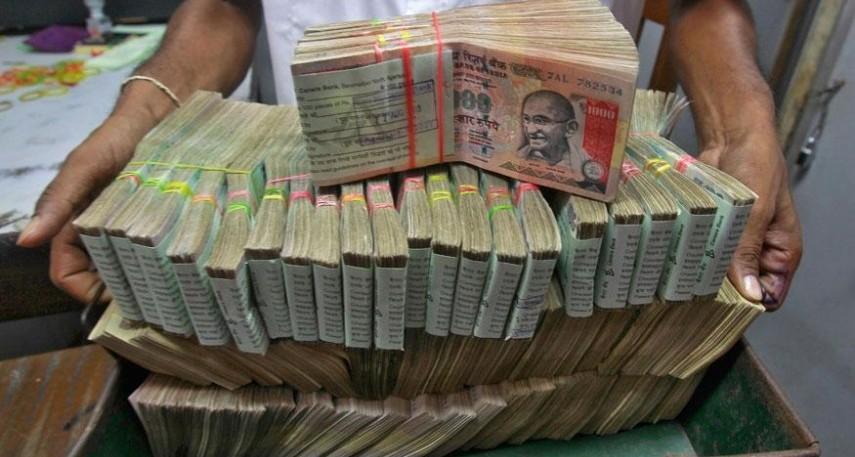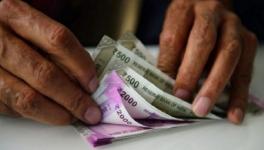Why Black Money is Not in Cash

Why do people hold cash? According to economic theory - there are three reasons why people generally hold cash – for transactional purposes, for precautionary purposes and for speculative purposes. But, many seem to believe that people also hold cash for another purpose - in order to evade tax.
The reason behind this belief is that some dishonest people do not report a part of their income to the tax administration. They do so in order to pay less tax to the government. If they put that income into the banks, they would not be able to hide it from the tax information network. So, instead, they hoard this money in the form of cash at home. Many people expect that this money cannot be deposited in the banks after demonetisation and those who hoarded cash would now be in trouble. However, this argument does not pass logical scrutiny.
Let us assume that a person falls into 20% tax bracket, given her reported income. Let us also assume that she is honest and pays her taxes. If she earns Rs.1000 extra, she pays a tax of Rs.200 on this additional income. So, she has an after tax income of Rs.800.
In the first year, she deposits her after tax income (Rs. 800) in a bank account and earns interest on this deposit. If we assume that the rate of interest is 10%, the person earns Rs. 80 of interest income. After paying 20% of tax one this interest income, she is left with a net interest income of Rs. 64. So, at the end of the first year, she has an income of Rs. 864 (= 800 + 64).
In the second year, she deposits the entire Rs.864 in the bank again. She recieves an additional interest income of Rs.86.40 (i.e. 10% of Rs.864), which amounts to Rs.69 (roughly) after paying tax at 20% rate. So, at the end of the second year, the person’s income is Rs.933 (= 864 + 69).
In the third year too, she deposits the Rs. 933 into the bank. She earns an interest income of Rs. 93.3, which amounts to an after tax interest income of Rs. 75. This will make for a total income of Rs. 1008, by the end of the 3rd year.
Now let us modify our assumption. Let us assume that from the beginning, the person behaves dishonestly. Instead of paying taxes, she hoards the Rs. 1000 at home.
In the beginning, she would have made a net gain of Rs. 200, because she did not pay taxes.
However, at the end of the first year, her net gain would come down to Rs.136 (= 1000 – 864). This is because she could not earn interest income, which, as we discussed before, she would have earned if she paid her taxes and deposited the income in the bank.
Similarly, at the end of the second year, her net gain would come down even more, to Rs. 67 (= 1000 – 933).
And, by the end of the 3rd year, the net gain, actually, becomes negative. She makes a net loss of Rs. 8 (= 1000 – 1008) because, if she had declared her income and continued to pay taxes, she would have had an income of Rs.1008, at the end of the third year.
It is needless to mention that the loss would go on increasing if the money is hoarded for longer period of time.
By the logic of the example above, it does not make sense to hoard a lot of cash, at least for a longer period of time. Hiding income and evading taxes, makes sense, only if the person can convert her undisclosed income quickly into some other form of asset holdings, like real-estate, land, gold, diamonds etc.
In fact, the deposit rate in the banks yields the minimum possible return. Other asset prices are likely to appreciate at a higher rate, than the deposit rate of the banks, making the returns from them even higher.
Therefore, if some people want to evade tax by underreporting their income, they are not likely to hold their unreported income in terms of cash for too long. They would buy residential flats, gold etc. They may hold disproportionate assets relative to their reported income, however, the demonetisation move per se. would not be able to do anything to them.
Even if some criminals cannot reveal their source of income, they too would not hold their black income in cash for too long because of the opportunity cost of cash holding mentioned above. They would make an investment somewhere as quickly as possible.
Hoarded cash per se. does not provide any utility or satisfaction to individuals unless they are exchanged for some useful commodities or services. Lot of transactions take place in cash, at times to evade tax (it is a systemic problem). But, it does not necessarily mean that dishonest rich people hoard a lot of cash all the time. In today’s (credit money) world, everybody realises that it is an absolute stupidity to hold cash in hand unnecessarily. Therefore, it is irrational to think that the policy of demonetisation would be successful in forcing them to reveal their unreported income and wealth.
Disclaimer: The views expressed here are the author's personal views, and do not necessarily represent the views of Newsclick.
Get the latest reports & analysis with people's perspective on Protests, movements & deep analytical videos, discussions of the current affairs in your Telegram app. Subscribe to NewsClick's Telegram channel & get Real-Time updates on stories, as they get published on our website.
























